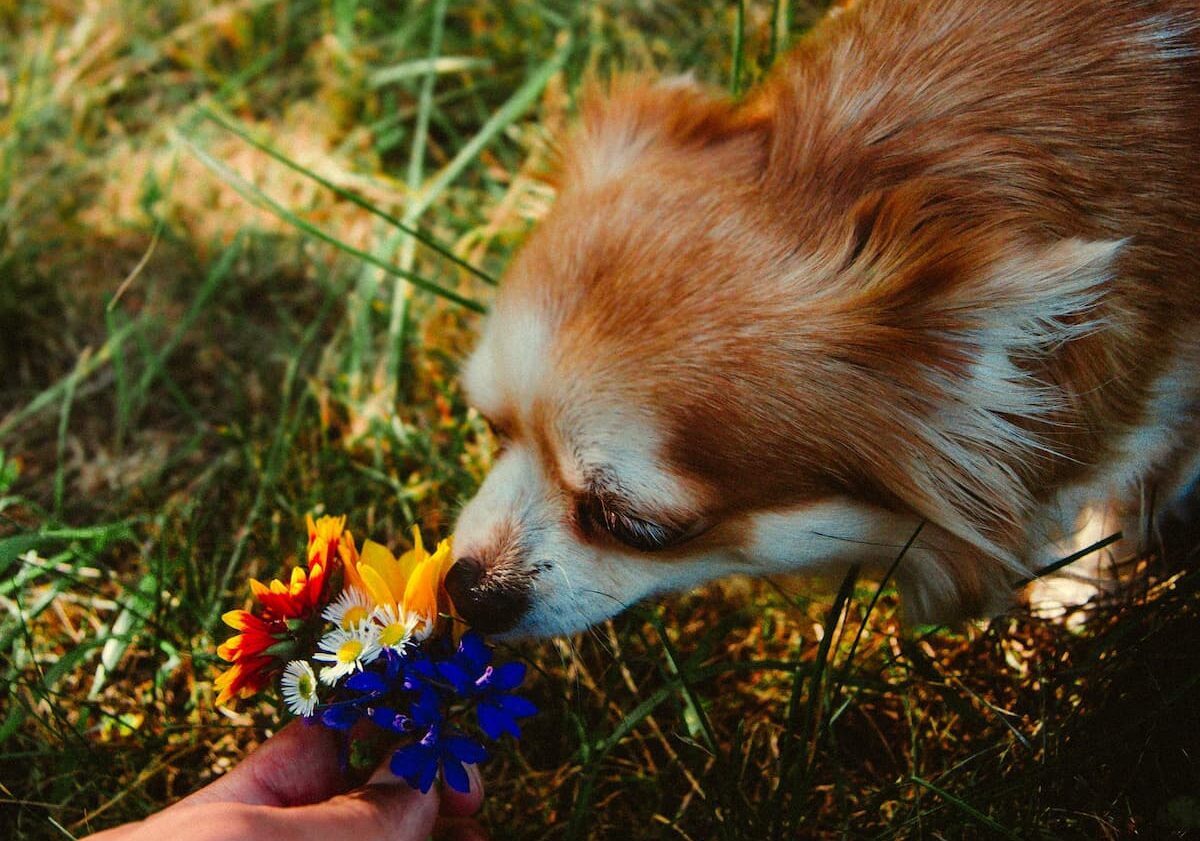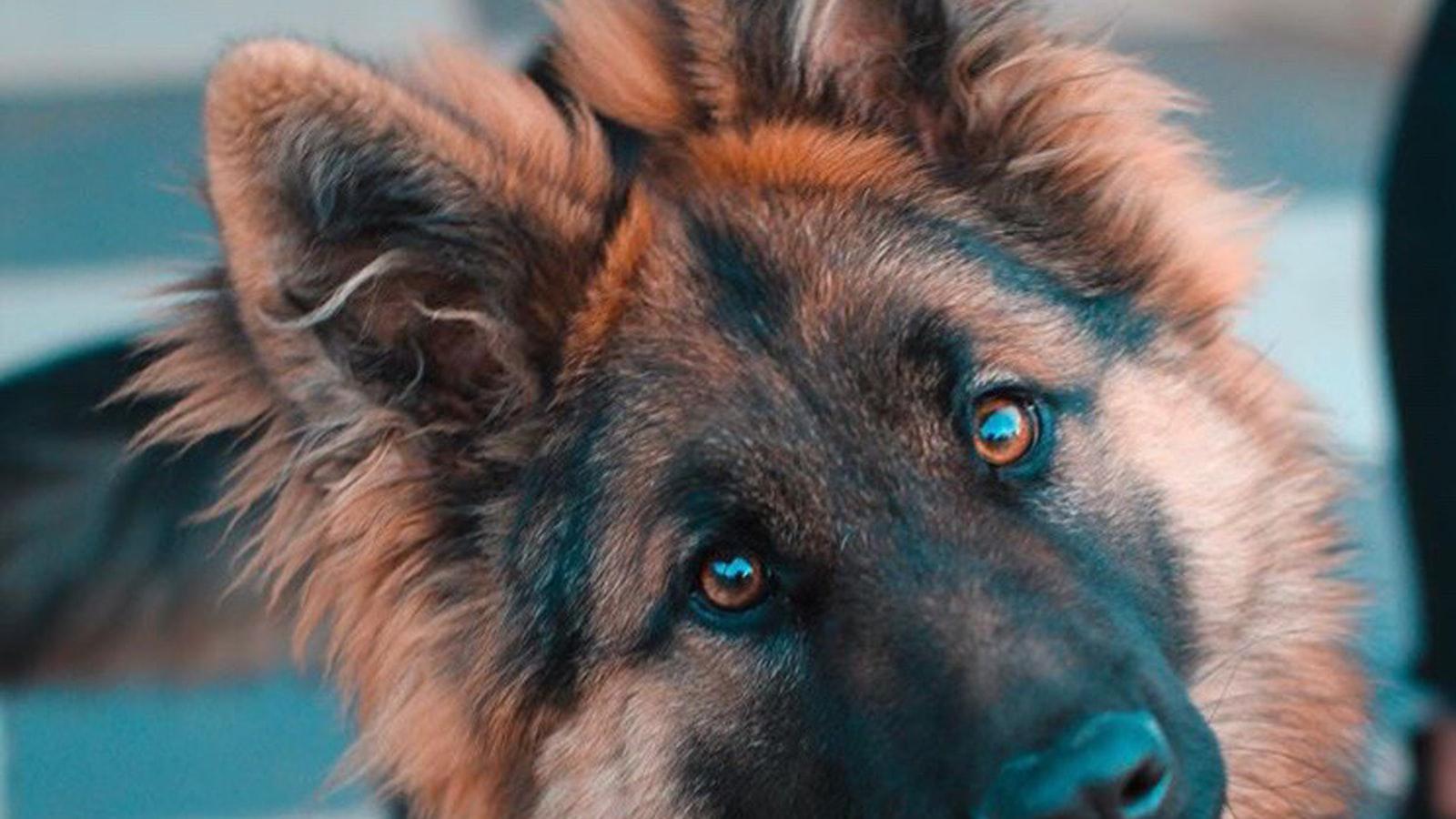Have you ever found yourself in an awkward situation with your furry friend, when they suddenly decide to give your private parts a good sniff?
It’s a common occurrence that can leave us feeling a mix of confusion and embarrassment.
But fear not, because there’s actually a fascinating reason behind this peculiar canine behavior.
Read on to find the answers to this strange crotch-sniffing habit.
Why Do Dogs Smell Your Private Part?
We’ve all experienced it, whether it’s our own dog or a friendly pooch we meet on the street – that seemingly inappropriate investigation of our most intimate areas.
But why do dogs engage in such unusual behavior?
Well, the answer lies in their incredible sense of smell and their innate curiosity.
You see, dogs have an incredibly heightened sense of smell compared to humans.
Their olfactory system is a thousand times more powerful, and they possess millions of scent receptors in their noses.
When they sniff our private parts, they can pick up on any subtle changes in our scent, such as hormonal shifts, pheromones, or even signs of illness.
By investigating us in this way, dogs can gather a wealth of information about our health, emotional state, and overall well-being.
One of the main reasons dogs are so interested in sniffing our private parts is because they are able to detect specific pheromones that we emit.
Pheromones are chemical substances that animals release to communicate with each other.
They can convey all kinds of messages, like signaling that we’re in heat or that we’re anxious.
So, when your dog sniffs your nether regions, they’re essentially reading the book of your body’s pheromones!
Furthermore, sniffing is an integral part of a dog’s communication and social interaction.
Just as we humans shake hands or hug, dogs sniff each other’s private parts as a way of greeting and getting to know one another.
By doing so, they can identify other dogs based on their unique scent, determine their gender, and even assess their social status.
It’s their way of saying “hello” and gathering information about their surroundings.
While many dogs are motivated by curiosity, some may engage in this behavior to mark their territory.
Dogs have scent glands in their anal area, and by sniffing your private parts, they are looking to leave a bit of their own scent behind.
This behavior is more common in intact male dogs, but it can be seen in both males and females.
It’s their way of saying, “This is mine, and I’m leaving my mark here!”
How to Respond When a Dog Sniffs Your Private Area
While we can appreciate a dog’s natural curiosity, it’s important to establish boundaries when it comes to our personal space.
Whether you’re comfortable with canine sniffing or not, it’s crucial to communicate your needs clearly and consistently.
Always remember that it’s your body and your space, and you have the right to set limits.
If a dog approaches you in a way that makes you uncomfortable, use clear body language, such as stepping backward or putting your hand in front of you, to create a physical barrier.
Don’t be afraid to assert yourself and politely ask the dog’s owner for their assistance in maintaining boundaries.
Creating a Positive and Respectful Environment for Dogs and Humans
To create a positive and respectful environment for dogs and humans alike, it’s important to acknowledge and manage these interactions appropriately.
Here are a few tips:
1. Allow dogs to greet each other in a controlled and safe manner, while giving them enough space to sniff each other.
This is a natural behavior that should not be discouraged, as long as it remains respectful and non-threatening.
2. As dog owners, it’s crucial to educate ourselves and others about this behavior.
Understanding the reasons behind it can dispel any discomfort or misconceptions, allowing us to foster a more tolerant and understanding community.
3. If you feel uncomfortable with dogs sniffing your private parts, try redirecting their attention by offering them a toy or engaging them in a positive activity, such as playing fetch.
Redirecting their focus can help create a more mutually enjoyable interaction while still acknowledging their natural instincts.
Remember, creating a positive and respectful environment for dogs and humans is all about understanding and appreciating their unique perspectives.
By educating ourselves and managing interactions appropriately, we can help cultivate a safe and enjoyable environment for everyone involved.
FAQ
Q: Why do dogs have a tendency to sniff our private parts?
Is it a form of invasion of privacy or just curiosity?
A: Well, we humans generally associate privacy with specific body parts, but for dogs, those areas carry important information.
When dogs sniff each other’s private parts, it’s not a nosy invasion or an attempt to embarrass us.
Instead, they are driven by curiosity and a desire to gather information about the world around them, including fellow creatures.
Q: What kind of information are dogs trying to collect by sniffing private parts?
A: Dogs have an exceptional sense of smell, and they possess a specialized sensory organ called the vomeronasal organ, or the Jacobson’s organ.
This organ is located in the roof of their mouths and is responsible for detecting pheromones.
When a dog sniffs another dog’s or a human’s private parts, they are analyzing the pheromones excreted in that area, which can reveal a wealth of information.
Q: What can those pheromones tell dogs?
A: Dogs are always keen on gathering information about their surroundings, especially when it comes to other dogs or humans.
The pheromones in our private parts reveal details about our identity, health, mood, and even reproductive status.
Dogs can assess whether we’re familiar or a stranger, whether we’re feeling happy, scared, or stressed, and even if someone is expecting a new family member (if you catch our drift!).
Q: Does age, sex, or gender influence a dog’s interest in sniffing private parts?
A: Absolutely!
Dogs tend to be particularly interested in sniffing areas that release a higher concentration of pheromones.
For instance, males and females have different hormone levels and, thus, unique smells in their private parts.
Similarly, puppies emit different pheromones compared to older dogs.
These variations drive dogs to explore, investigate, and gather information about other animals they encounter.
Q: How should we handle a dog sniffing our private parts?
A: Understanding why dogs have this behavior may make you feel less awkward when it happens.
When a dog sniffs our private parts, it’s best not to discourage them entirely.
We can gently redirect them by offering an alternative object to investigate, such as a toy or a treat.
Remember to reward them for moving on to a more appropriate target.
Additionally, dogs should be trained to respect personal boundaries and taught proper greetings, making everyone involved more comfortable.
Q: Can we do anything to prevent dogs from sniffing private parts altogether?
A: While we can’t entirely prevent dogs from being attracted to our private parts due to their intrinsic curiosity, we can set boundaries and educate them through training.
Teaching our four-legged friends the importance of respecting personal space helps minimize these awkward encounters.
Remember, consistency and positive reinforcement training can go a long way in shaping their behavior.
Q: Is it abnormal if a dog doesn’t show interest in sniffing private parts?
A: Not at all!
Just like humans, dogs have different personalities and preferences.
Some may have a stronger inclination to explore certain scents, while others may not be as intrigued.
If your dog doesn’t display a keen interest in private parts, it’s perfectly normal and nothing to worry about.
It doesn’t make them any less loving or attentive to you as their companion.
Remember, our dogs’ world revolves around scents and smells, and sniffing is an essential way for them to gather information and navigate their surroundings.
So, the next time Fido decides to give your private parts a sniff, know that it’s just their unique way of getting to know you and the world.
In Conclusion
Strange as it may seem, this seemingly peculiar behavior is an integral part of their social interaction.
Our furry friends rely heavily on their sense of smell to gather information and establish connections with fellow dogs and humans alike.
But let’s not forget that dogs are not simply nosy creatures poking their noses where they shouldn’t.
Rather, they’re guided by an instinct buried deep within their DNA.
Descendants of wolves, canines have inherited a rich olfactory repertoire that allows them to pick up on subtle scents we could never fathom.
Unveiling this unique perspective, we’ve learned that dogs are actually trying to determine our chemistry, our emotions, and even our health status.
It’s their way of gathering information, connecting with us, and understanding the world around them.
So, the next time your furry friend takes an excessive interest in your nether regions, rest assured, it’s just their way of saying, “Hello, human! Let’s bond and get to know each other better!”
Though it may seem embarrassing or awkward at times, let’s embrace this fascinating aspect of our beloved pets.
After all, their sniffing tendencies are just one of the many quirks that make dogs such wonderful companions.
So, the next time your furry best friend decides to play investigator, remember, it’s all part of their world – a world that revolves around smells, curiosity, and their undeniable love for us.












